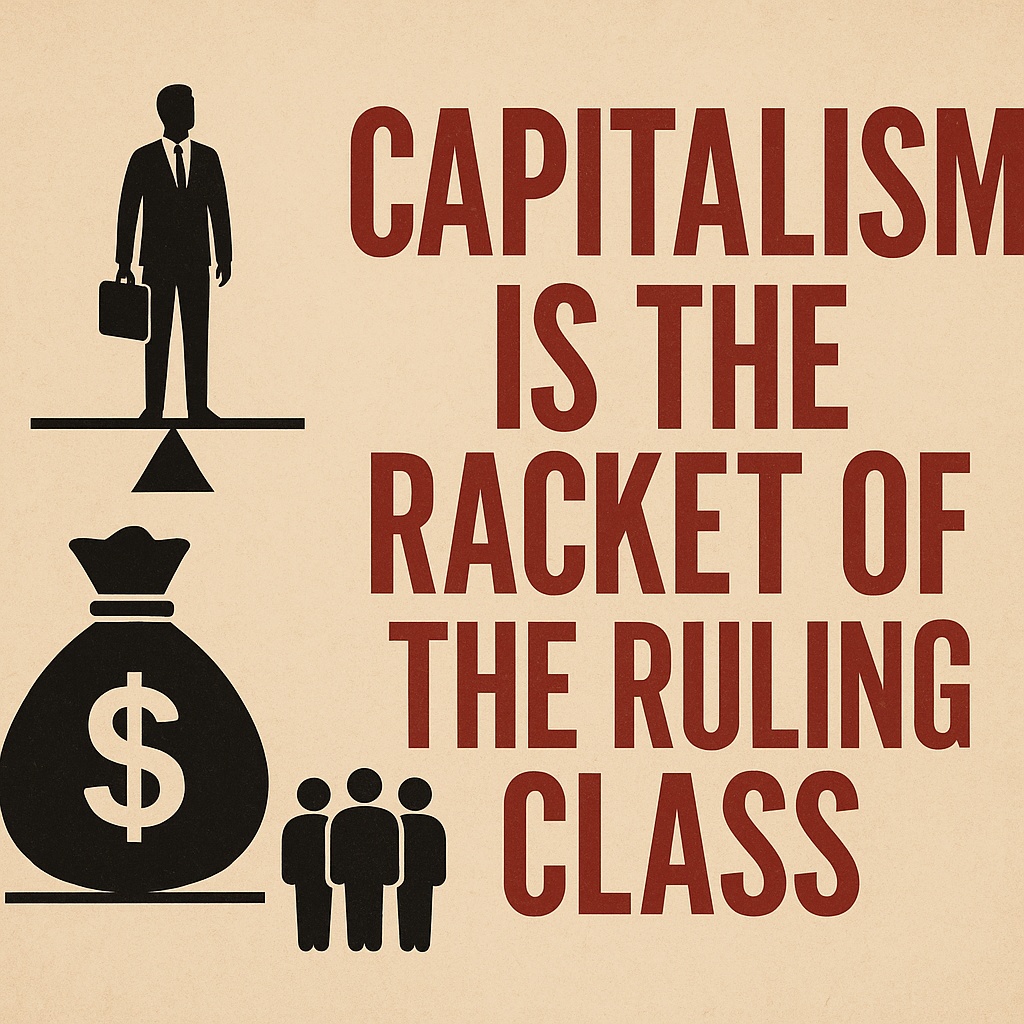Al Capone once said that capitalism is the legitimate racket of the ruling class. He was not joking. He was describing the system exactly as it works. Capitalism does not run on free and fair competition. It runs on organized extraction. The ruling elite takes wealth from the rest of society and calls the process “progress.” The biggest winners are not shop owners or start-up founders. They are the super-rich families, global banks, and multinational corporations.
Surplus value: The core mechanism of exploitation
Karl Marx called it surplus value—the difference between the value workers create and the wages they take home. That gap drives profits, dividends, and executive bonuses. It fuels the upward flow of wealth.
You cannot erase surplus value completely. If no one could earn more than the exact value of their labor, no one would take risks or innovate. People need motivation. The real problem is not surplus value itself. The real problem is the ruling elite capturing most of it while giving almost nothing back.
Invisible foundations: The cleaning lady and the clerk
Every corporate tower depends on people who will never enter its top floors. The cleaning lady prepares the offices before executives arrive. Clerks process the paperwork that keeps the entire structure running. These workers are essential. Without them, nothing functions.
Yet capitalism treats them as expendable. It keeps their pay low, their contracts insecure, and their role invisible. Their work generates value for others but never delivers equal reward for themselves.
The real racket earners: The ruling class
At the top sit people who do not need to work at all. Generational wealth shields them from risk. They own companies, land, and financial institutions. Banks control entire economies by issuing credit, charging interest, and trapping nations in debt. Multinational corporations shift factories across borders to pay the lowest wages and avoid taxes.
These people capture the majority of surplus value. They own the assets and channels that funnel wealth into their accounts. They also shape the rules to protect their position.
Capitalism’s illusion of equality
The system sells the myth of meritocracy. It claims the rich rise through hard work and talent. It hides the structural advantages that matter far more—inheritance, monopolies, political influence.
Media amplifies this lie by praising self-made millionaires while ignoring billions stuck in low-wage jobs. Schools train obedience and punctuality instead of economic understanding. Workers keep chasing the dream of “making it” while playing a game designed for them to lose.
Law and state as enforcers of the racket
Laws protect property over people. Courts secure corporate contracts. Police break strikes and guard business assets. Governments fine corporations for fraud, but the fines cost less than the profits from the crime.
Ruling elites do not wait for lawmakers to act. They lobby, fund campaigns, and draft legislation themselves. They turn the state into a weapon for protecting their wealth.
Here is the section adjusted with the surplus value point included:
Legal racketeering vs mafia one
The mafia runs its racket in the shadows. It takes “protection” money, controls territory, and enforces loyalty with threats. The ruling class runs its racket in public. It uses corporate charters, legal contracts, and political influence.
Taxes, in principle, fund the common good—roads, schools, hospitals. But the super-rich keep most of their wealth out of reach. They hide it in tax havens, bend loopholes, and pressure lawmakers to shape tax codes in their favor. The average worker cannot escape the bill. The billionaire can make it vanish.
Both the mafia and the legal racket live off the surplus value produced by others. The mafia takes it directly in cash. The ruling class takes it by owning the means of production, controlling markets, and skimming off the difference between what workers create and what they get paid. The mafia fears the police. The legal racket often gives them orders.
Global dimension: The racket without borders
The racket crosses every border. Multinationals exploit cheap labor in the Global South while moving profits into tax havens. Banks and investment funds operate worldwide, shifting capital wherever returns are highest and taxes lowest.
The IMF and World Bank back this process. They hand out loans with demands attached—privatize your industries, cut social programs, open your markets. The result is the same: foreign investors take control, and local populations pay the price.
Conclusion: Breaking the racket
Capitalism survives because it concentrates wealth efficiently while masking exploitation with the language of opportunity. Surplus value will always exist because people need incentives. But the system fails when a small elite keeps almost all of it.
The challenge is to design an economy where surplus value drives progress instead of hoarding, where essential workers earn as much respect as executives, and where the wealth created by many stays with many—not just with the few running the racket.

Leave a Reply